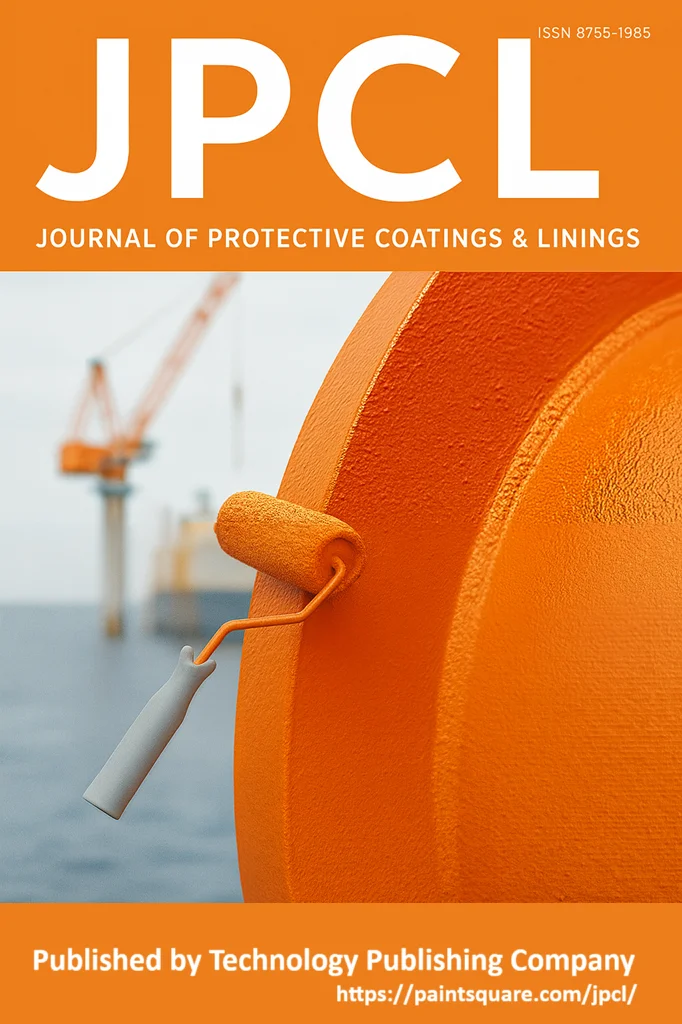Publication Ethics and Integrity Guidelines
The Journal of Protective Coatings & Linings (JPCL) is firmly committed to maintaining the highest standards of publication ethics and integrity. Our editorial policies are guided by the principles of the Committee on Publication Ethics (COPE), and we expect all authors, reviewers, and editors to uphold these best practices at every stage of the publication process.
1. Editorial Independence and Integrity
JPCL Editorial Board members are completely independent in their decision-making. The publisher does not interfere in the assessment or final decision of submitted manuscripts. However, if an ethical or legal concern arises—such as plagiarism, conflicts of interest, or breaches of research integrity—JPCL reserves the right to reconsider or withdraw any publication, even after acceptance.
Every manuscript undergoes careful checks, both by automated tools and manual review, to ensure compliance with our ethics guidelines. Potential issues are reviewed by our editorial team and, if necessary, further evaluated by an academic editor.
2. Core Ethical Principles
JPCL’s ethical framework is grounded in the following principles:
Early and systematic detection of ethical concerns through technical and editorial checks.
Fair, unbiased handling of all cases, with an emphasis on objectivity and factual accuracy.
Open communication with all parties involved, offering the opportunity to respond or clarify as needed.
Reliable and uniform procedures for investigating and resolving issues, always aligning with COPE guidance.
3. Responsibilities of Authors
All authors submitting to JPCL must:
Accurately and objectively report findings and discuss their significance, avoiding fabrication, falsification, or selective reporting of data.
Submit only original work that has not been published elsewhere, in whole or in part. Simultaneous submission to multiple journals is not allowed.
List only those who made significant scientific contributions as authors, clearly outlining each person’s role and obtaining their consent.
Reveal any financial, personal, or professional interests that could be perceived as influencing the research or its interpretation.
Make raw data, methods, and materials available where possible, and describe them in enough detail to allow reproducibility.
Secure all necessary permissions for previously published material, figures, tables, or substantial quotations.
Notify the editorial office promptly of any errors or inaccuracies discovered post-publication.
4. Authorship Policy
JPCL follows internationally accepted standards for authorship:
Substantial contributions to the conception, design, data collection, or analysis.
Drafting or critically revising the manuscript for important intellectual content.
Final approval of the version to be published.
Accountability for the integrity and accuracy of the work.
All changes to authorship after submission require the written agreement of all authors. In cases of dispute, JPCL will follow COPE recommendations and may seek guidance from the relevant institution.
5. Use of Artificial Intelligence (AI) Tools
If AI or large language models (such as ChatGPT) are used to generate text, data, graphics, or support data analysis, authors must disclose this in the submission and provide details in the methods or acknowledgments sections.
AI tools cannot be listed as authors.
Reviewers and editors must not upload confidential manuscripts or related material to any AI service.
6. Plagiarism, Data Fabrication, and Image Integrity
Copying text, ideas, or data from any source without proper attribution is strictly prohibited. All direct quotations must be clearly marked and cited.
Altering or inventing data, or modifying images in ways that could misrepresent findings, is a serious violation.
Authors may be asked to provide original, unprocessed data or images during review. All images must reflect the original data and should not be inappropriately adjusted.
7. Dual-Use Research and Sensitive Content
Manuscripts with potential for dual-use (i.e., research that could pose a threat to public safety, health, or security) must be transparently declared and justified in the cover letter and manuscript. JPCL will weigh the potential benefits and risks before proceeding with peer review.
8. Sex and Gender Equity
Authors are encouraged to follow international guidelines (such as SAGER) for reporting sex and gender in research. Where relevant, differences should be clearly described in the title, abstract, and throughout the manuscript.
9. Conflicts of Interest
All authors, reviewers, and editors must disclose any financial or non-financial interests that could influence their work. This includes employment, consultancies, share ownership, funding, and any other relevant affiliations.
A “Conflicts of Interest” statement must be included in all submissions. If there are no conflicts, please state: “The authors declare no conflicts of interest.”
10. Copyright and Intellectual Property
All articles published in JPCL are open access under a Creative Commons Attribution 4.0 International License (CC BY 4.0). This allows anyone to share, adapt, and build upon the work, provided the original source is cited.
Authors are responsible for obtaining permission for use of any third-party content and must provide appropriate acknowledgments.
11. Preprints and Prior Publication
JPCL accepts submissions that have previously appeared as preprints, provided they have not been peer reviewed or formally published. Authors must disclose preprint details on submission.
12. Citation and Data Policies
Authors should ensure all sources are properly cited, avoid excessive self-citation, and reference only material they have read.
JPCL encourages open sharing of research data and recommends depositing data in recognized repositories. Data availability statements are required for all published articles.
13. Handling Misconduct and Complaints
JPCL investigates all credible claims of ethical breaches, such as plagiarism, data falsification, image manipulation, or authorship disputes. Investigations follow COPE procedures, with input from the editorial board and, if needed, institutional authorities.
If serious errors or ethical issues are found post-publication, JPCL may issue corrections, retractions, or expressions of concern as appropriate. Retracted articles remain on the journal website but are clearly marked as retracted.
Readers with concerns should first contact the corresponding author, then the editorial office if the issue is unresolved. All complaints are handled confidentially and with respect for all parties.
14. Publication Updates and Name Change Policy
JPCL allows for corrections, minor or major, when necessary to preserve the accuracy of the scientific record. Author name change requests are honored discreetly without notification to co-authors.
